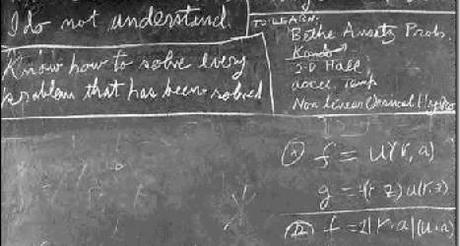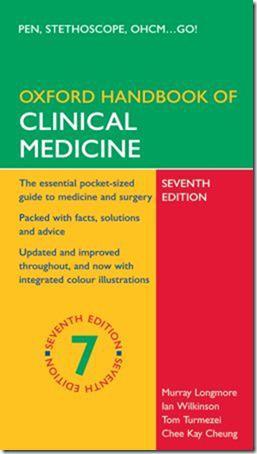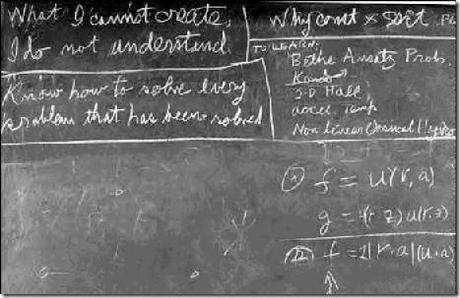
Well, that sounds like an odd assortment of topics to group under the same heading, does it not? Well, today I had the misfortune of experiencing first hand what Feynman had described ages ago in Surely You’re Joking, Mr. Feynman?
As my blog readers might know, I had an examination today, and before you ask me, I will submit that it did not go all too well. In this post I would like to discuss an aspect of the question paper that I found particularly irksome. Now I am not, for one moment, saying that these particular problems caused me to take a really bad test, but what I am saying is that questions like these make studying for an exam a pain in the neck. I know I was not too well prepped for the exam as it was, and expecting a miracle would not be scientifically sound judgment, but anyways, my point is, an exam should be geared towards a constructive assessment of a student and NOT a “destructive” one.
Anyways. As any Feynman fan will remember, he decided to drop out of Physics for a while and check out Biology while he was in Princeton to just get a feel for what was going on in the world of science around him. Trust a scientific genius like him to do something weird like this. Anyways, so when he was doing Biology, he had a rather fun run in with a librarian when he demanded a “map of a cat” to study its anatomy.

Now, in order to preserve the joy of the original reading, let me quote to you:
The next paper selected for me was by Adrian and Bronk. They demonstrated that nerve impulses were sharp, single-pulse phenomena. They had done experiments with cats in which they had measured voltages on nerves.I began to read the paper. It kept talking about extensors and flexors, the gastrocnemius muscle, and so on. This and that muscle were named, but I hadn’t the foggiest idea of where they were located in relation to the nerves or to the cat. So I went to the librarian in the biology section and asked her if she could find me a map of the cat.“A map of the cat, sir?” she asked, horrified. “You mean a zoological chart!” From then on there were rumors about some dumb biology graduate student who was looking for a “map of the cat.”
When it came time for me to give my talk on the subject, I started off by drawing an outline of the cat and began to name the various muscles.
The other students in the class interrupt me: “We know all that!”
[Now THIS is my favorite part!]
“Oh,” I say, “you do? Then no wonder I can catch up with you so fast after you’ve had four years of biology.” They had wasted all their time memorizing stuff like that, when it could be looked up in fifteen minutes.
So, it goes without saying, something similar happened in today’s exam. We had a series of questions on Indian Penal Code [I remember the questions all to well, and plan to recall them in a later post, like I had done before – major crowd pullers, these; sorry to game the Goog dear reader, but I love getting me some hits!].
Now I find questions that ask us for information about the principles of the law or for that matter, punishments and other stipulations a meaningful enquiry, but what I absolutely do not get is why they would ask us questions like:
A doctor can be punished for issuing a false certificate under which of the following section of the Indian Penal Code:a. 197
b. 147
c. 157
d. 167
I understand, we need to know that there is a legal framework against issuing of a false medical document, and we are held primarily responsible for it. But how does it do me, a doctor, any good to know WHICH section I shall be tried under for this? My mother is a lawyer and even she has no idea what the answer should be. [But I do, and I think that is pathetic!]
 I have seen the Indian Penal Code, and it is a book hardly any bigger than the OHCM. And the Penal Codes are VERY well arranged. it would hardly take anybody who knows how to read, not more than 5 minutes to locate the answer to this particular question. There were 3 other questions like this, specifically asking for the particular Penal Code section involved.
I have seen the Indian Penal Code, and it is a book hardly any bigger than the OHCM. And the Penal Codes are VERY well arranged. it would hardly take anybody who knows how to read, not more than 5 minutes to locate the answer to this particular question. There were 3 other questions like this, specifically asking for the particular Penal Code section involved.
Another reason I find this line of questions very illogical and impractical is the fact that Indian legal system is a veritable mine of legal documents. One of the oft quoted legal booklets is the Criminal Procedure Code and we are routinely drilled on the contents of the same. So, how many of these legal books should I read? As a doctor, I can justify any number of crimes I could commit in course of my professional life [if I was a betting man, and I am not, my money would be on the fact that some of our professional brethren may already have done that sort of thing!] that could be covered by the obscurest of Indian legal paraphernalia. Does that mean I have to learn the specific portions? Heck, since when did we stop making the lawyers?
This time around there was a question which asked us what the maximum sentence for breaking the Organ Transplantation Act of 1994 was. It is still a more reasonable question, since knowing that I can be docked for more than 5 years might keep me from stealing a kidney or something [no, really, I mean it], but in the previous years, they have asked WHICH YEAR the law was implemented. Once again, what good does it do if I know that the law was implemented in 1994? Does it have any bearing on my clinical abilities or my medical acumen or whatever?
Another question which has an interesting bent ONLY if you are in jurisprudence or whatever was:
A chronic alcoholic, who was brought in for medical examination following a violent assault on his neighbor had not consumed alcohol in the past four days and was found to be suffering from delirium tremens. In this case, according to the Indian Penal Code:a. He has no criminal responsibilities for his actionsb. He has criminal responsibilities for his actions
c. He has partial responsibilities for his actions
d. He has diminished responsibilities for his actions
Now I bet if you asked a lawyer this question, he would ask you back: “What do you want it to be?” but the truth remains that the final decision on his criminal responsibility does not really lie with the doctor. It is good enough that he can diagnose the person to be suffering from delirium tremens, and the rest of the work should be done by the legal eagles.
Just in case you are wondering what this answer might be, I will invite you to read this excellent paper on: Intoxication as a defense in criminal law.
Now you know what a deviously complicated question that was! What good does it do to a doctor to know about this issue?
These questions are basically just sieves put in place to separate the “grain” from the “chaff”. They encourage rote based learning, something that is at the bottom of the problems plaguing the whole Indian educational system, not just the medical front. If we are to be tested as proper medics, do us the honor of asking us proper questions. I am not saying that these questions altered the outcome of the exam for me. My preparations, if not adequate, will not take me across any kind of an examination. But I would surely like to take an exam where I am not left looking at the paper and wondering why I had not spent more time mugging up “the map of the cat”.



COMMENTS ( 1 )
posted on 27 April at 17:08
always i used to read smaller articles which also clear their motive, and that is also happening with this paragraph which I am reading now.